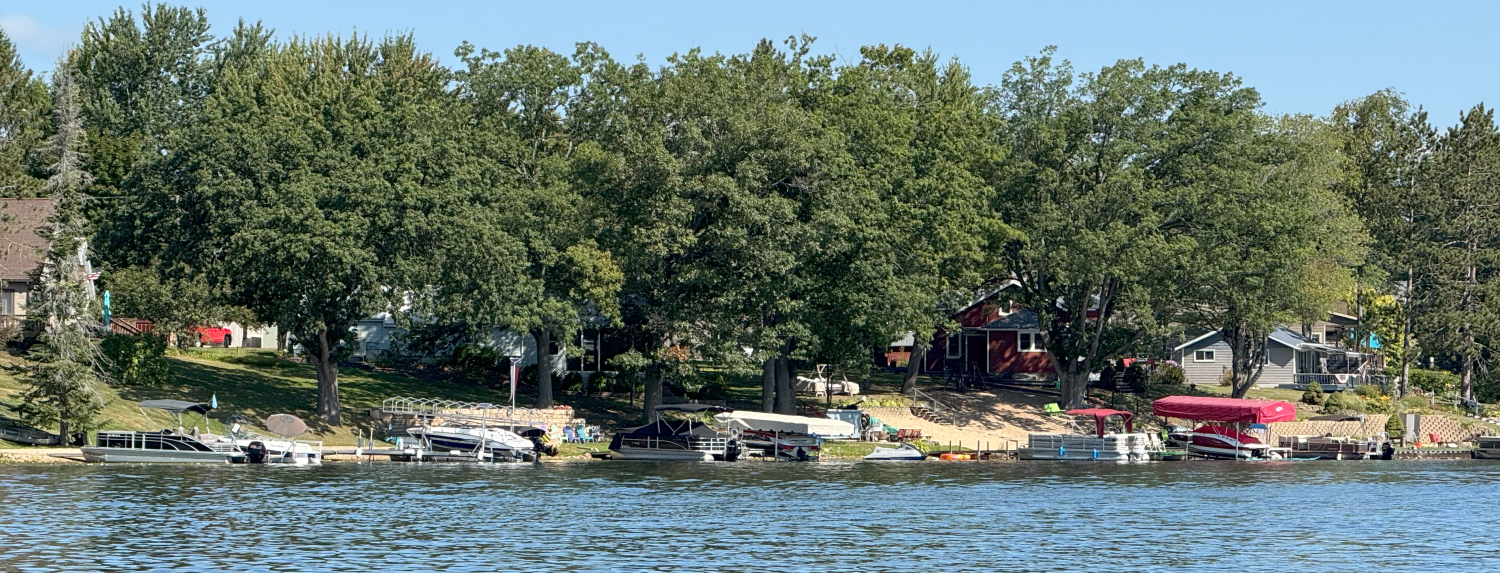Michigan Riparian Rights
Protecting Your Lakefront Property
Owning waterfront property in Michigan comes with unique legal rights and responsibilities. These rights, known as riparian rights, are central to everything from dock placement and boating access to disputes with neighbors and local governments. If you live on — or are considering purchasing — lakefront or riverfront property in Michigan, understanding riparian law is essential.
This website is designed to give you a general overview of Michigan riparian law and explain how to protect your legal interests and property rights.

Michigan is a Riparian Wonderland
Michigan is a water-rich state. With more than 11,000 inland lakes and tens of thousands of miles of rivers and streams, it is no surprise that disputes about who can use the water and how they can use it are among the most common property issues faced by landowners. These disputes arise because of a unique body of law known as riparian rights — the special legal rights granted to property owners whose land touches a natural waterbody.
Riparian rights affect everyday activities such as swimming, fishing, and boating, as well as high-value decisions like where a dock may be placed or whether neighbors can claim access across your shoreline. The goal of this site is to provide practical information to help Michigan property owners understand their rights, avoid unnecessary conflicts, and recognize when professional legal assistance may be necessary.
Riparian vs. Littoral
Owning property on a Michigan lake or stream carries unique rights and responsibilities. These rights are called riparian or littoral rights. Understanding the doctrines and terminology that Michigan courts use (and mis-use) is essential for waterfront owners.
Michigan law technically distinguishes between riparian and littoral ownership. Riparian owners hold land that touches a river or stream. Littoral owners border a lake. The term riparian, however, has been mis-used over the past fifty years in Michigan and has come to include inland lakes. While both are water-related rights, the State of Michigan retains de facto ownership of Great Lakes bottomlands under the Public Trust Doctrine.
| Core Doctrines | |
|---|---|
| Reasonable Use | Each riparian owner may use the water in a manner that is “reasonable” and does not unreasonably interfere with neighboring owners’ rights. |
| Correlative Rights | All riparian owners share the water resource; no owner may monopolize shoreline or bottomlands to the detriment of others. |
| Accretion, Reliction, & Erosion | Shorelines shift naturally over time. Gradual gains or losses of land can alter property boundaries under Michigan law. |
| Apportionment | Courts project upland boundary lines into the water using wedge, perpendicular, or proportionate-line methods to fairly divide bottomlands. |
| Public Trust | The public retains rights to navigation, fishing, and recreation on navigable waters, even where private ownership may extend beneath the surface. |
| Key Terminology | |
|---|---|
| Riparian Rights | Rights attached to property that directly touches a river or stream (and has been used to also describe land touching an inland lake). |
| Littoral Rights | Rights attached to property that directly touches a lake (though the term riparian is often used interchangably). |
| Meander Line | A survey line following a natural shoreline, used in describing property near water. |
| Back-lot Owner | A property owner without direct frontage on a lake; access is typically by easement or plat. |
| Ordinary High-Water Mark | The legal boundary separating private upland from the public use area along Great Lakes shores. (It does not apply to inland lakes.) |

Understanding these doctrines and terms helps Michigan lakefront owners understand their rights, avoid disputes, and make informed decisions about property use.
For guidance on your specific situation, contact Outside Legal Counsel PLC.